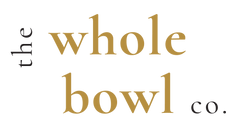
Preparing for breastfeeding: 11 tips from Holistic Lactation Consultant Joelleen Winduss Paye of JWP.
During my time supporting breastfeeding families, there have been many instances where parents have expressed their wish to have been more prepared. When faced with breastfeeding challenges in the early days, it's common to feel overwhelmed and unsure about how to troubleshoot. With conflicting advice about breastfeeding, finding expert support in the heat of the moment can be difficult. Here are my top suggestions to get a head start on your breastfeeding knowledge and increase your chances of an empowered breastfeeding journey:
- Decide why breastfeeding is important to you and your partner and identify what you value most about it. These values will serve as your mantras during tough times. Breastfeeding can be both the best and the worst, so having strong values to ground you is crucial when faced with difficulties.
- Seek out quality information. Research and find online courses, workshops, podcasts, and helpful resources that resonate with you. Doing this ahead of time is important as finding the right information under pressure can be stressful. Create a list of reliable resources and trusted experts to turn to when you need information to troubleshoot common challenges such as engorgement, mastitis, low supply, nipple pain, and more.
- Explore local breastfeeding support options. This could be a service provided by your local hospital or council, or a private International Board Certified Lactation Consultant (IBCLC) who can visit you at home after your baby arrives. If possible, consider having an antenatal consultation with a lactation consultant to assess your breast shape and size and identify potential struggles in advance. This consultation can also help you understand what to expect and develop a breastfeeding plan aligned with your goals. Consulting ahead of time ensures that you have already established a connection and know what to expect when seeking support during such a vulnerable time.
- Learn how to hand express. Hand expression involves manually collecting colostrum (early milk) from around 36 weeks of pregnancy. It's important to seek medical clearance from your healthcare provider, as nipple stimulation can cause a rise in oxytocin, which might induce labor in certain cases. If there are no contraindications, learn the technique and practice it. If you collect any colostrum, freeze it for use after your baby is born, if needed. Pre-expressed colostrum can be helpful if you and your baby are separated after birth or if your baby requires special care in the neonatal intensive care unit (NICU) or special care nursery (SCN). Moreover, hand expressing before your milk supply increases can lead to a quicker and more sustained milk supply.
- Learn about skin-to-skin contact, its benefits, and how to implement it. Skin-to-skin involves cuddling with your baby without clothes (except for the baby's nappy) to stimulate the hormone oxytocin. Oxytocin aids in bonding, milk supply, stress relief, and acts as a natural pain reliever. Enjoying skin-to-skin time with your baby as often as possible is a beautiful way to spend the early days together.
- Nipple tenderness is normal when you and your baby are figuring out the right latch and breastfeeding technique. Learning how to latch your baby properly is crucial in preventing and minimizing discomfort. Incorrect latching can cause sore and damaged nipple skin, which unfortunately is quite common. Prepare ahead of time by finding the right products to care for your nipples. My top recommendations include organic nipple balm, saline solution for rinsing, silverettes, and passive milk catchers like the Youha Shells (use code JWPCARE for 10% off). Having these options on hand can help protect and heal your skin, making breastfeeding more comfortable and reducing the likelihood of further complications
- Create a nurturing and comfortable resting space for yourself and your baby. As you'll be spending a lot of time resting and nourishing your baby, it's essential to set up a nest that makes you feel safe and cozy. I recommend using beautiful linens, soft yet supportive pillows, and fabrics that provide a comforting embrace. Take the time to make this space special by including artwork or visuals that uplift you. Keep snacks and nourishing food readily available. Planning ahead can significantly boost your mood during challenging days and nights.
- While not everyone will need or want to use a breast pump, I generally recommend researching the types of pumps available in case you find yourself needing one. Reasons for needing a pump may include stimulating milk supply, separation from your baby due to early birth or NICU/SCN admission, having twins, or returning to work while still wanting to provide breast milk to your baby. There are numerous options to choose from, but it's helpful to know that a hospital-grade pump with a strong and efficient motor and the ability to double pump (expressing from both breasts simultaneously) can save time. Many of my clients find the Youha range efficient and gentle. Wearable pumps (hands-free, worn in a bra) are generally recommended once your milk supply is established (between 4-8 weeks). However, the pump that you find most comfortable and convenient is the one you'll likely use the most easily. Use code JWPCARE for 10% off Youha products.
- Getting a few nursing bras ahead of time can be helpful, although finding the right fit and size may require some trial and error. I particularly recommend the Mumma Milla leakproof range, especially their night bralette, which can be worn throughout the day as well. In the early days, you may not wear a bra frequently, but having a quality leakproof bra can provide support when you want to venture out of the house. Use code JWP10 for 10% off their range. Soft fabrics are essential, and other good options include Boody and Juem.
- I always recommend that parents read "The Discontented Little Baby Book" by Dr. Pamela Douglas. Dr. Douglas, an Australian-based GP and IBCLC Lactation Consultant, provides accurate advice and valuable insights. This easy-to-read book covers essential breastfeeding information and outlines what to expect from your newborn and what they need during their first few months of life.
- Breastfeeding cannot be done alone, and research shows that a mother's/parent's feelings of support are strongly associated with breastfeeding success and duration. Use your pregnancy as a time to build your postpartum support network. Consider organizing meal trains, delegating cleaning tasks, hiring a postpartum doula, and planning family/friend visits so you and your baby can have uninterrupted and private bonding time. Establishing breastfeeding and creating a strong bond require rest, privacy, and being surrounded by your inner and outer circles.
I wish you all the best in your breastfeeding journey and am thrilled to serve you as part of the Whole Bowl community. As a Melbourne-based holistic Lactation Consultant, I offer consultations at my clinic in Parkville, in-home visits in most inner-city suburbs, and virtual consultations worldwide. If you'd like to delve deeper into preparing for breastfeeding, I teach a live online workshop on this topic every second month. To work with me or sign up for a workshop, please visit www.jwp.care. I would love to support you in achieving a positive and empowered breastfeeding journey.
Joelleen Winduss Paye
Founder of JWP, Holistic Lactation Consultant
IBCLC Lactation Consultant, Naturopath, Midwife & Educator
@jwp.ibclc

